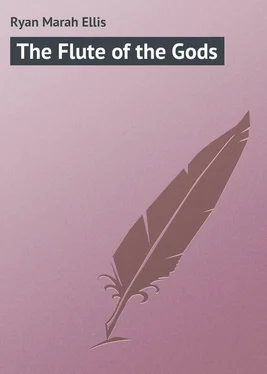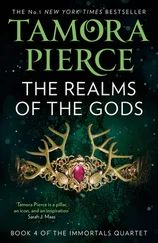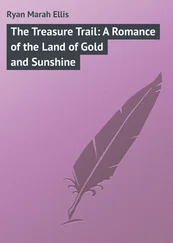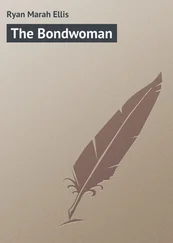Marah Ryan - The Flute of the Gods
Здесь есть возможность читать онлайн «Marah Ryan - The Flute of the Gods» — ознакомительный отрывок электронной книги совершенно бесплатно, а после прочтения отрывка купить полную версию. В некоторых случаях можно слушать аудио, скачать через торрент в формате fb2 и присутствует краткое содержание. Жанр: foreign_prose, на английском языке. Описание произведения, (предисловие) а так же отзывы посетителей доступны на портале библиотеки ЛибКат.
- Название:The Flute of the Gods
- Автор:
- Жанр:
- Год:неизвестен
- ISBN:нет данных
- Рейтинг книги:3 / 5. Голосов: 1
-
Избранное:Добавить в избранное
- Отзывы:
-
Ваша оценка:
- 60
- 1
- 2
- 3
- 4
- 5
The Flute of the Gods: краткое содержание, описание и аннотация
Предлагаем к чтению аннотацию, описание, краткое содержание или предисловие (зависит от того, что написал сам автор книги «The Flute of the Gods»). Если вы не нашли необходимую информацию о книге — напишите в комментариях, мы постараемся отыскать её.
The Flute of the Gods — читать онлайн ознакомительный отрывок
Ниже представлен текст книги, разбитый по страницам. Система сохранения места последней прочитанной страницы, позволяет с удобством читать онлайн бесплатно книгу «The Flute of the Gods», без необходимости каждый раз заново искать на чём Вы остановились. Поставьте закладку, и сможете в любой момент перейти на страницу, на которой закончили чтение.
Интервал:
Закладка:
So it was that the boy watched the drama of the Flute people from the mesa edge for the last time. The circle of praying priests at the sacred well; virgins in white garments facing the path of the cloud symbols that the rain might come;–weird notes of the flute as the chanters knelt facing the medicine bowl and the sacred corn; then the coming of the racers from the far fields with the great green stalks of corn on their shoulders, and the gold of the sunflowers in the twist of reeds circling their brows. He did not know what the new land of his mother’s tribe would bring him, but he thought not any prayer could be more beautiful than this glad prayer to the gods. Of that prayer he talked to Mo-wa-thé.
Then eight suns from that day, he went from his mother’s home to the kiva of the Snake Priests, and he heard other prayers, and different prayers, and when the sun was at the right height, for four days they left the kiva in silence, and went to the desert for the creeping brothers of the sands. To the four ways they went, with prayers, and with digging-sticks. He had wondered in the other days why the men never spoke as they left the kiva, and as they came back with their serpent messengers for the gods. After the first snake was caught, and held aloft for the blessing of the sun, he did not wonder.
He had shrunk, and thought it great magic when the brief public ceremony of the Snake Order was given before the awe-struck people:–It had been a matter of amaze when he saw the men he knew as gentle, kind men, holding the coiling snake of the rattles to their hearts and dance with the flat heads pressed against their painted cheeks.
But the eight days and nights in the kiva with these nude, fasting, praying men, had taught him much, and he learned that the most wonderful thing in the taming of the serpents was not the thing to which the people of the dance circle in the open were witness. He was only a boy, yet he comprehended enough to be awed by the strong magic of it.
And of that prayer of the serpents he talked not at all to Mo-wa-thé.
And the Ancient knew it, and said. “It is well! May he be a great man–and strong!”
From a sheath of painted serpent skin the Ruler drew a flute brown and smooth with age.
“Lé-lang-ûh, the God of the Flute sent me the vision of this when I was a youth in prayer,” he said gently. “I found it as you see it long after I had become a man. On an ancient shrine uncovered by the Four Winds in a wilderness I found it. I have no son and I am old. I give it to you. Strange white gods are coming to the earth in these days, and in the south they have grown strong to master the people. I will be with the Lost Others when you are a man, but my words here you will not forget;–the magic of the sacred flute has been for ages the music of the growing things in the Desert. The God of the Flute is a god old as the planting of fields, and a strong god of the desert places. It may be that he is strong to lead you here once more to your brothers on some day or some night–and we will be glad that you come again. For this I give the flute of the vision to you. I have spoken. Lo-lo-mi!”
CHAPTER III
OF THE JOURNEY OF TAHN-TÉ
The journey of Tahn-té to his mother’s land of the East was the wonder journey of the world! There were medicine-men of Ah-ko for their guides, and the people were many who went along, so no one was afraid of the Navahu of the hill land.
And a new name was given to his mother. Ho-tiwa gave her the name, and put on her head the water of the pagan baptism to wash away that which had been. The new name was S[=aa] – hanh-que-ah and it meant the “Woman who has come out from the mists of a Shadow or Twilight Land.” And they all called her by that name, and the men of Ah-ko regarded her with awe and with respect, and listened in silence when she spoke.
For the first time the boy saw beyond the sands of the desert, and in the high lands touched the running water of living springs, and scattered meal on it with his prayers, and bathed in the stream where green stems of rushes grew, and braided for himself a wreath of the tasselled pine.
“ Ai-ai! ” said his mother softly,–“to the people of my land the pine is known as the first tree to come from the Mother Earth at the edge of the ice robe on her bosom. So say the ancients, and for that reason is it sacred to the gods–and to the sacrifices of gods. Have you, my son, woven a crown of sacrifice?”
But Tahn-té laughed, and thrust in it the scarlet star blossom growing in the timber lands of the Navahu.
“If I am made sacrifice I will have a blood strong, living reason,” he said, with the gay insolence of a young god walking on the earth.
But the older men did not smile at the bright picture he made with the blood-red stars in the green of his crown. They knew that even untried youth may speak prophet words, and they made prayers that the wise woman of the twilight land might not see the day when her son became that which he had spoken.
He carried with him a strange burden:–an urn or jar of ancient days dug from one of the buried cities of the Hopi deserts. On it was the circle of the plumed serpent, and the cross of red and of white. It was borne on his back by a netted band of the yucca fibre around his brow, and in it were young peach trees, and pear trees–the growing things of the mystic seeds given to the medicine-men of the Hopi the day of the boy’s birth.
Seeds also were being carried, but it was the wish of the mother that her son carry the growing things into the great valley of the river P[=o] – s[=o]n-gé.
Even into the great rift of the earth called Tzé-ye did he carry it, where the cliff homes of the Ancient Others lined the sides of the cañon and the medicine-men of Ah-ko spoke in hushed tones because of the echoing walls, and of the strong gods who had dwelt there in the days before men lived and died.
“The dead of the Ancient ones are hidden in many hollow places of the stone,” explained one of the men who spoke the language of Te-hua people. “And it is good medicine for the man who can walk between these walls where the Divine Ones of old made themselves strong. You do not fear?”
“I do not fear,” said S[=aa] – hanh-que-ah, the woman of the twilight, “and my son does not fear. Before he was born to the light of the Sun Father, I made the trail from the level land of the west where the snow is, to the deep heart of the world where the plants have blossoms in winter time, and the birds sing for summer. Beside it this deep step down from the world above is like the thickness of your finger against the height of a tall man.”
The men stared at her in wonder, and Tahn-té listened, but could not speak when the older men were silent.
“There is such a place,” said the oldest of the men. “It is to the sunset. The water comes strong there, and it is a place of the gods, as this place is. And you have seen it with your eyes?”
“I have seen it, and the water that is so strong looks from the top like this reed of this ancient dwelling place,” said S[=aa] – hanh-que-ah, and she pointed to the waving slender lattice grass of the cañon.
“I have heard of it, but our people do not cross it in these days,” said the old man. “Our friends the Te-huas cross it–and cross a desert beyond when they go to the Love Dance of the Chinig-Chinik who live by the sunset sea. In my youth I thought to go, but old age is here and I have not yet seen it.” Then after an interval of thoughtful silence he said:–“You have crossed that river in the heart of the world–I did not know that women went to the Love Dance.”
“I can not tell you. I also do not know,” said S[=aa] – hanh-que-ah quietly, and the boy saw that the eyes of all the men were directed strangely to his mother. “I do not belong to the Order from which the people are sent to the Dance of Love or the Dance of Death. My eyes have not seen the waters of the sunset sea.”
Читать дальшеИнтервал:
Закладка:
Похожие книги на «The Flute of the Gods»
Представляем Вашему вниманию похожие книги на «The Flute of the Gods» списком для выбора. Мы отобрали схожую по названию и смыслу литературу в надежде предоставить читателям больше вариантов отыскать новые, интересные, ещё непрочитанные произведения.
Обсуждение, отзывы о книге «The Flute of the Gods» и просто собственные мнения читателей. Оставьте ваши комментарии, напишите, что Вы думаете о произведении, его смысле или главных героях. Укажите что конкретно понравилось, а что нет, и почему Вы так считаете.












